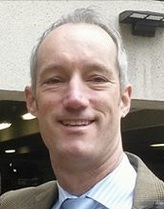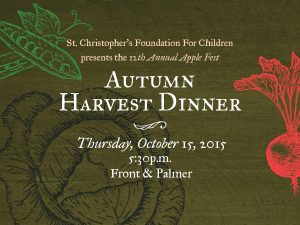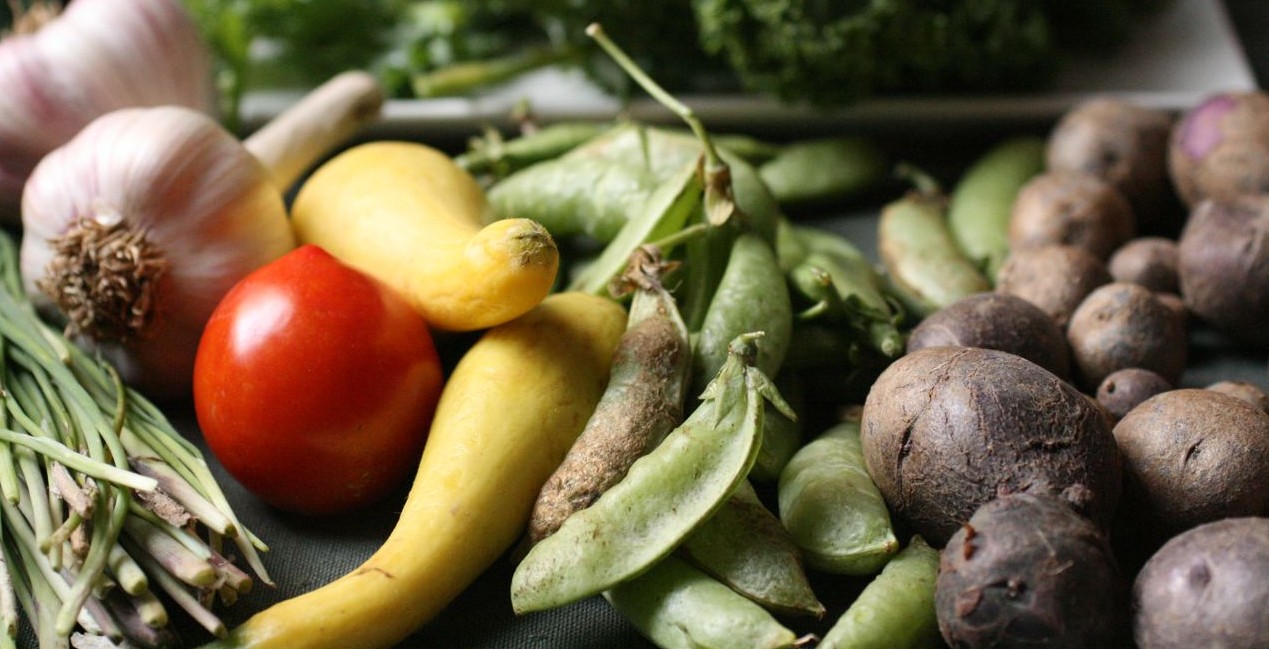When the St. Christopher’s Foundation for Children created its Farms to Families Initiative in 2009 to bring fresh produce into the food desert of North Philly, the intention was simply—and profoundly—to help poor patients and their families access the kinds of foods they needed to stay healthy. But the program has taken on dimensions that even Jan Shaeffer, St. Chris Foundation president, never imagined. St. Chris Hospital doctors Hans Kersten and Daniel Taylor have garnered national acclaim for Fresh Rx, which encourages doctors to write literal prescriptions for a subsidized box of fresh produce the foundation provides through Lancaster Farm Fresh. Doctors have written 30,000 prescriptions, and some 200 families a week get produce through St. Chris now. And the program has now extended beyond the city, to several locations in Bucks County, thanks to Joann Dorr, director of Families Living Well at St. Mary Medical Center, a health and wellness program. The power of the Farms to Families is evident in its least likely customers: Residents in a homeless tent city near one of the Bucks locations.
“We really are getting the highest-quality produce to people who have the least,” says Shaeffer. “And we’re changing people’s perceptions, in a health care setting, of the role that fresh food plays. If kids are sick, or if they’re not, they will have better outcomes if they get this fresh produce.”
Next Thursday, the St. Chris Foundation will celebrate Kersten, Taylor and Dorr for the work they do on Farms to Families, at their 12th annual Apple Fest Autumn Harvest Dinner, sponsored by The Citizen, Skai Blue Media and Lancaster Farm Fresh. Tickets for the event, at Front & Palmer, are $125, with all proceeds benefitting the Foundation.
See below for The Citizen’s April 2015 feature on Farms to Families.
Combatting The Food Desert
Through a first-of-its kind program, doctors in North Philly are taking on hunger by writing prescriptions for fresh fruits and vegetables.
by Roxanne Patel Shepelavy
The young patient in Hans Kersten’s pediatric clinic at St. Christopher’s Hospital was like so many others the doctor sees every day. Just 10 years old, the boy was already obese, putting him at immediate risk for diabetes, hypertension, emotional and behavioral issues, and setting him up for a lifetime of illnesses, from heart disease to cancer. From his 20 years as a pediatrician in North Philadelphia, Kersten knew that a critical factor in his patient’s poor health was the boy’s own neighborhood: Forty percent of children in North Philly live in poverty, and nearly half of all families have food insecurity—which means, counterintuitively, that the boy was obese not from overeating, but from issues related to hunger.
“Hunger is invisible,” says Kersten. “But it has effects that go way beyond malnutrition.”

Luckily, Kersten had a tool that could help him treat his young patient before he got sicker: FreshRx, a program run by the St. Christopher’s Foundation for Children to bring fresh fruits and vegetables to families in the “food desert” around the hospital. Kersten took out a doctor’s pad, and wrote his patient a prescription for a weekly box of fresh food, heavily-discounted, that his family could pick up in the hospital. Two years later, the boy has lost dozens of pounds.
“That was what his family needed,” Kersten says. “Like a lot of families, they didn’t have fresh food accessible before. We’ve found a way to make that possible.”
North Philly is among the poorest neighborhoods in the country, a place where a generation of residents have struggled for the basics—food or heat, rent or bus fare. Grocery stores are often hard to get to, so meals are what families can find at a corner store or a fast food eatery. And even when grocery stores are accessible, fresh produce often isn’t. “The price of fruits and vegetables has gone up six or seven times,” Kersten notes. “If you have $5, do you buy a head of lettuce? Or a bunch of burgers and fries, which can feed the whole family?”
Forty percent of children in North Philly live in poverty, and nearly half of all families have food insecurity. Counterintuitively, many children are obese not from overeating, but from issues related to hunger.
The Farms to Families program at St. Chris—the only of its kind in the country—is essentially a low-income, year-round CSA (Community Supported Agriculture). Each week, the program offers boxes of mixed fruits and vegetables, as well as fresh eggs, which families can pay for with their SNAP (Supplemental Nutrition Assistance Program) benefits: $10 for a medium box of between five and eight different kinds of produce, or $15 for a large box. The produce comes with recipes in English and Spanish to make it easier for families to plan meals. Throughout the summer, most of the fruits and vegetables are local; in fall and winter, the Foundation sources fruit from out of the area, to ensure families can still get oranges and avocados all year-round. Farm to Families is underwritten through several foundation grants—including the Claneil Foundation and the Jimmy Rollins Foundation, which pays for a loyalty card, providing the 10th box for free. Like with a CSA, the Foundation has pickups at six locations throughout the neighborhood, most of them in medical clinics.
Jan Shaeffer, president of the St. Chris Foundation, says around 200 families purchase produce boxes each week, for a total of around 26,000 distributed since the start of the program in 2009. Last year, nearly 400 families used their SNAP benefits to buy the produce, which was around half of the program’s new customers. “That’s exactly the population we want to get to,” Shaeffer says. “The question is always, ‘How can we get more families involved in this?’”
That’s where Kersten comes in. Kersten runs St. Christopher’s Grow Clinic, for young children who are undernourished, and sees patients through the hospital’s pediatric practice. Under his oversight in the last three years, FreshRx has become increasingly embedded in the way the hospital treats its 20,000 patients a year. Visits to St. Christopher’s now include a “food insecurity survey,” used to assess whether a child has access to enough of the right kinds of foods. Nurses and others bring fresh apples into the waiting room, letting kids help peel them and then distributing pieces of the fruit as a healthy snack. The fresh food prescription goes into a child’s electronic record, so a coordinator can follow up with the family shortly after a visit, to further explain the program, and sign them up for a location. (This will also make it easier to conduct a scientific study on the benefits of FreshRx, which is in the planning stages.) For some families, just that little push is enough to change a child’s life.
Around 200 families purchase produce boxes each week, for a total of around 26,000 distributed since the start of the program in 2009. Last year, nearly 400 families used their SNAP benefits to buy the produce, which was around half of the program’s new customers.
But as Shaeffer and Kersten have learned, changing behavior is far more complicated for many. Of the more than 3,000 FreshRx prescriptions St. Chris doctors have written, only 17 percent have been redeemed. Partly, Kersten says, this is a matter of playing catch-up: More than 100 doctors and nurse practitioners at the hospital now write prescriptions, which has overwhelmed the program’s part-time coordinator. But for those who do sign up, even receiving the food is sometimes not enough. “There’s a generation of people who don’t know how to cook or store the vegetables,” Kersten says. “We’ve had people say, ‘What’s this?’ because they’ve never even seen a broccoli.”
Shaeffer says that as the program has grown, it has also become clear how much more work needs to be done.“Some people don’t have a peeler, or a really sharp knife, or have an oven that takes 30 minutes to heat up,” she notes. Now, she says, St. Chris is starting to think beyond the box, to providing discounted kitchen tools, or transportation to the pickup centers, or other services that might make it even easier for families to benefit from FreshRx. It is also taking its lesson national: Kersten is in California this week presenting FreshRx to a pediatrics conference. And in Philadelphia on Wednesday, St. Chris is hosting FreshRx: The Symposium, a gathering of national, regional and local food service agencies, to share strategies for bringing better food to more families.
“The more we work at this, the more we see it doesn’t get easier,” Shaeffer says. “There is so much more we can do, locally and around the country. This really feels like just the beginning.”





